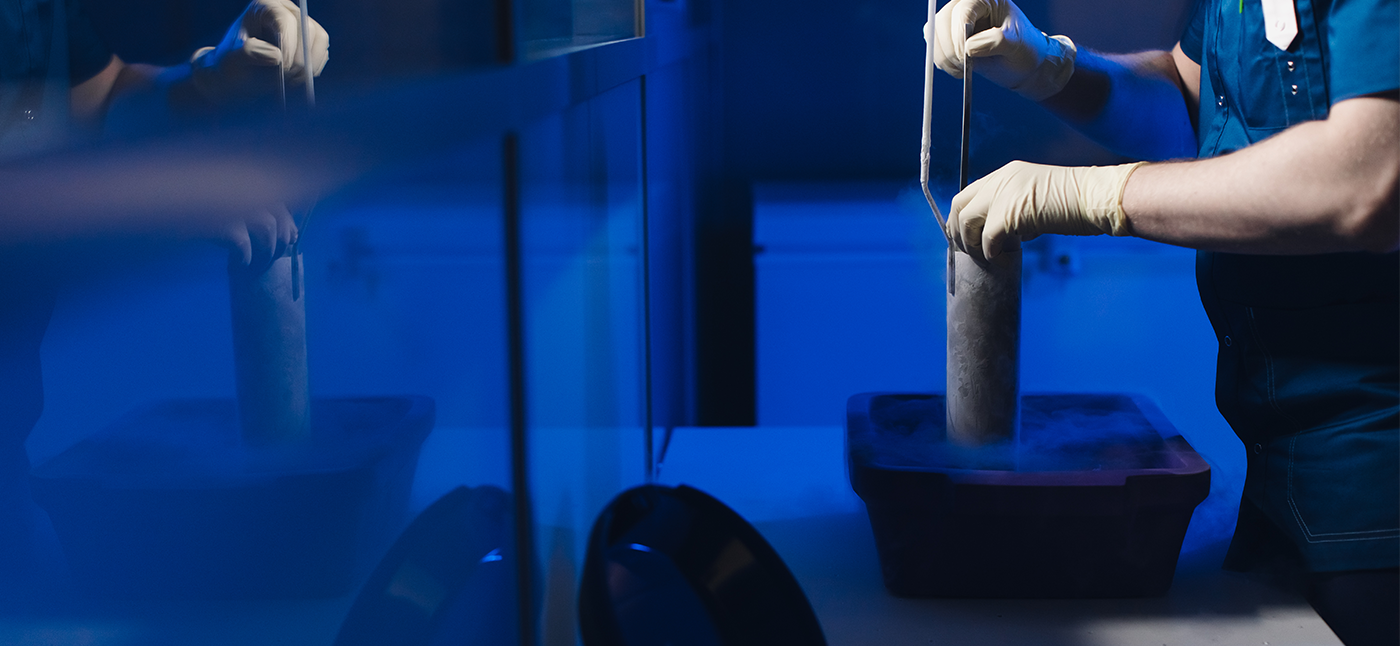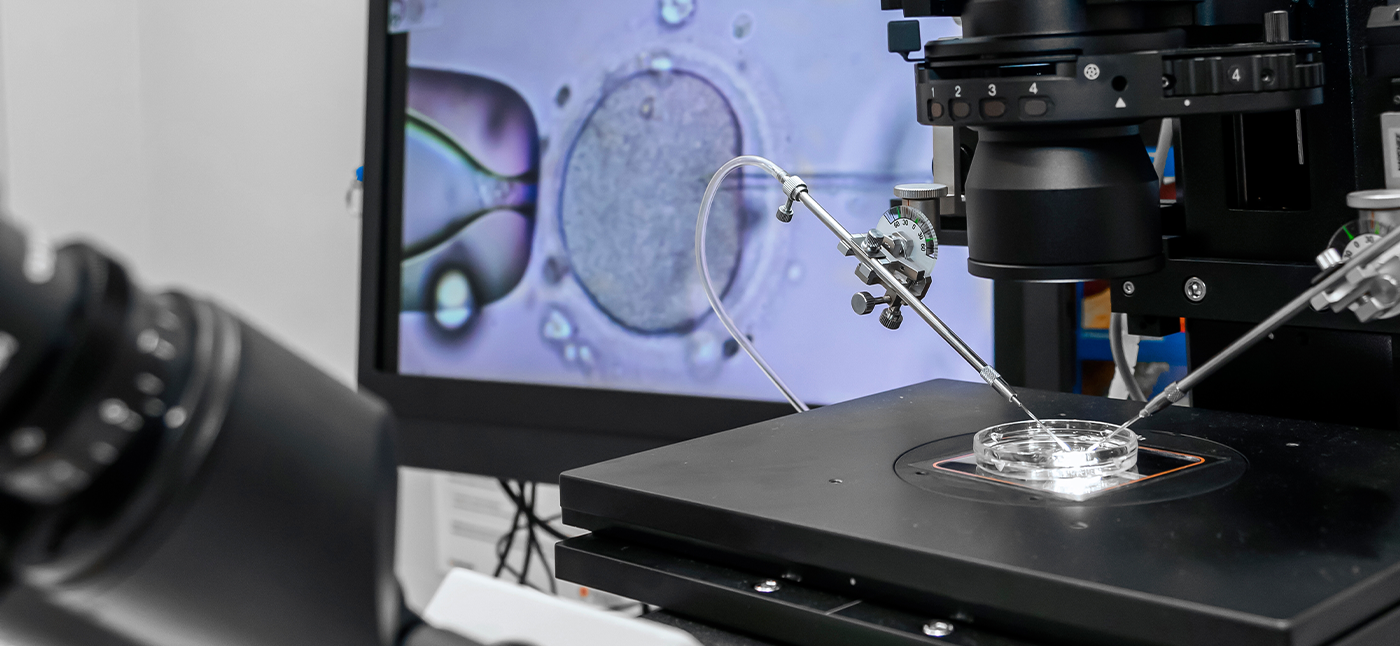What to Expect After Your IVF Frozen Embryo Transfer
May 14, 2024
INSIGHTS,TECHNOLOGYWhat to Expect After Your IVF Frozen Embryo Transfer So, you've decided to freeze your embryos for a future FET after IVF. That's a smart move! But what happens after the transfer itself? This guide will give you a low-key rundown on what to expect in the days following the procedure.

The frozen embryo transfer marks a momentous step in your IVF journey. You've navigated the initial rounds of stimulation, retrieval, and embryo creation, and now it's time for implantation. This exciting phase brings a wave of anticipation as you hope for a successful transfer and the possibility of pregnancy. Let's delve into a emotional rollercoaster to empower you as you embark on this hopeful new stage.
What is Frozen Embryo Transfer (FET)?
Frozen Embryo Transfer (FET) is a fertility treatment step where embryos created during a previous IVF cycle are thawed, and then transferred into your uterus. In simpler terms, it's using embryos you've already created to attempt pregnancy without going through the whole IVF process again.
Candicacy for FET
Frozen Embryo Transfer (FET) is a viable option for many people who have undergone IVF. Then, they have remaining good quality embryos. It's a less invasive and generally less expensive procedure compared to a complete IVF cycle. Here are some factors that make someone a good candidate for FET:
- Age: Women under 35 have the highest success rates with FET. However, age is just one factor, and FET can be successful for women up to their 40s.
- Embryo quality: The quality of the frozen embryos is a major factor influencing success rates. Healthy embryos with good cell division and expansion are more likely to implant.
- Underlying medical conditions: Certain medical conditions, like uterine fibroids or uncontrolled endometriosis, may affect the success of FET. Therefore, a healthcare professional should address these.
- Previous IVF outcomes: People who had success with prior IVF cycles using their own eggs are generally good candidates for FET.

FET Frozen Embryo Transfer Process
The Frozen Embryo Transfer (FET) process is a less invasive. It is generally more affordable option than a complete IVF cycle. Here's a breakdown of the FET process:
Pre-Transfer Steps
- Consultation: You'll consult with your doctor to discuss your candidacy for FET. Then, they determine the best course of action for your specific situation.
- Preparing the endometrium (uterine lining): This phase involves thickening and enriching the lining of your uterus. As a result, this creates a hospitable environment for the embryo implantation. There are two main approaches:
- Natural cycle FET: Utilizes your natural menstrual cycle for endometrial growth. Your doctor will monitor ovulation and endometrial thickness through ultrasounds and may prescribe medication to trigger ovulation if needed.
- Stimulated cycle FET: Employs hormonal medications, like estrogen and progesterone, to precisely control and optimize endometrial growth for implantation.
The Transfer
- Embryo thawing: Cryopreserved embryos are thawed. During this, doctors use a specific protocol that ensures their survival and viability.
- Transfer procedure: They insert a thin, flexible catheter through the cervix. Then, they carefully guide it into the uterus using ultrasound for visualization. The thawed embryo/s are then deposited into the uterine cavity.
- Post-transfer recovery: The procedure is typically an outpatient basis, and recovery is quick. Doctors will likely advise you to rest for a short while before resuming regular activities.
What Happens After FET?
Following FET, you can expect a period of waiting and, hopefully, the beginning of a pregnancy. Here's a breakdown of what to expect after the procedure:
Physically:
- Minimal recovery: FET is a minimally invasive procedure, so recovery is typically quick. You might experience some mild cramping or spotting after the transfer, but this is usually nothing to worry about.
- Medications: Your doctor might prescribe progesterone supplements to support your uterine lining during the crucial implantation phase.
- No need for bed rest: Unlike some misconceptions, there's no need for strict bed rest after FET. You can resume most of your daily activities, but it's wise to avoid strenuous exercise or lifting heavy objects.
Emotionally:
- The two-week wait: This period between transfer and pregnancy test can be emotionally challenging. It's natural to experience anxiety, hope, and maybe even impatience.
- Managing expectations: While FET boasts good success rates, it's not guaranteed. Talking to your doctor about realistic expectations beforehand can help you manage your emotions during the wait.
- Staying positive: Focusing on healthy activities and relaxation techniques can be helpful. Thus, you can manage the emotional rollercoaster of the two-week wait.
Testing:
- Resistance is futile (for pregnancy tests): The temptation to take a home pregnancy test before the recommended timeframe is strong, but it's generally discouraged. Early tests might not be accurate due to fluctuating hormone levels. Stick to the doctor-recommended blood test around 7-10 days after transfer for a definitive answer.

FET Success Rates
FET success rates vary depending on age and embryo quality, but generally offer good odds. Studies by the Society for Assisted Reproductive Technology (SART) reported a 68.8% live birth rate per transfer for chromosomally normal frozen embryos in women under 35 [1]. This dips to 53% for women over 4 [2]. It's important to remember these are averages, and consulting your doctor about your own situation will provide a more tailored expectation.
FET Costs and Countries
Frozen Embryo Transfer (FET) offers a more affordable path to pregnancy compared to a complete IVF cycle. These are just estimates. The actual cost of FET can vary. Here's a table outlining the estimated cost range for FET in various countries:
| Country | Estimated Cost Range (EUR) |
| USA | €5,000 - €15,000 |
| UK | €3,000 - €10,000 |
| Spain | €3,500 - €8,000 |
| Czech Republic | €2,000 - €5,000 |
| Greece | €2,500 - €6,000 |
Embarking on a frozen embryo transfer is a significant step in your IVF journey. Wupdoc can be your trusted companion throughout this process. Our platform offers a user-friendly interface and a comprehensive database to connect you with leading fertility clinics and specialists experienced in frozen embryo transfers.
[1] Click for statistic details.
[2] Click for statistic details.
top 5 doctors & clinics in FET - Frozen Embryo Transfer, Turkey:
 5.0Turkey, İstanbul
5.0Turkey, İstanbulFertility
Welcome to Jinepol Women's Health and IVF Clinic, a dedicated center offering comprehensive services in women's health and in vitro fertilization (IVF). Our clinic prides itself on fostering a close and warm patient-physician relationship, ensuring personalized care alongside high-level examinations and treatments.We specialize in advanced in vitro fertilization treatments, including microinjection methods like Intracytoplasmic Sperm Injection (ICSI), renowned for achieving high success rates in cases of infertility, particularly those attributed to male factors. Our commitment to your journey towards parenthood extends to employing the Preimplantation Genetic Testing (PGT), Method in IVF treatments, promoting healthy pregnancies and ensuring the birth of healthy babies.For individuals facing challenges in conceiving due to male infertility, our clinic offers the Micro TESE (Microsurgical Testicular Sperm Extraction) method, enabling the identification and extraction of healthy sperm from testicles under a microscope.At Jinepol, we prioritize your dream of achieving pregnancy through cutting-edge IVF treatments, providing tailored solutions and compassionate care. Contact us today to inquire about our IVF prices and take the first step towards realizing your aspirations of starting or expanding your family.
# 1
 5.0Turkey, İstanbul
5.0Turkey, İstanbulFertility
Dr. Egemen Koyuncu, MD, specializes in Obstetrics, Gynecology, and Infertility, with a particular focus on In-Vitro Fertilization (IVF). Driven by a lifelong passion for medicine, Dr. Koyuncu is dedicated to helping patients achieve their dreams of parenthood. Offering a range of advanced fertility treatments, including IVF, egg freezing, embryo transfer, and intrauterine insemination, Dr. Koyuncu combines expertise with compassionate care. Whether you are starting your fertility journey or seeking specialized reproductive treatments, Dr. Egemen Koyuncu provides personalized and cutting-edge solutions to optimize your chances of success. Trust in Dr. Koyuncu’s experience and commitment for effective and supportive fertility care. Book a consultation today to take the next step toward growing your family.
# 2
 5.0Turkey, İstanbul
5.0Turkey, İstanbulFertility
Prof. Dr. Remzi Abalı is a highly experienced Obstetrics and Gynecology Specialist who graduated from Istanbul University Cerrahpaşa Faculty of Medicine in 1999. With a focus on fertility treatments, Prof. Dr. Abalı offers a range of advanced reproductive services including vaccination, preimplantation genetic diagnosis (PGD), embryo transfer, and egg freezing. His expertise in fertility solutions helps individuals and couples achieve their dreams of starting a family. Prof. Dr. Abalı utilizes the latest techniques and technologies in reproductive medicine, providing personalized care to ensure the best possible outcomes for his patients. Whether it's fertility preservation or fertility treatments, Prof. Dr. Abalı's comprehensive approach ensures optimal results and patient satisfaction.
# 3
 4.9Turkey, İstanbul
4.9Turkey, İstanbulFertility
Medicana Çamlıca Hospital, established in 1999 as a premier healthcare institution on the Anatolian Side of Istanbul, stands as a beacon of excellence in the medical field. With a steadfast commitment to delivering unparalleled healthcare services, the hospital has gained prominence for its exceptional offerings across various specialized branches.Distinguished for its expertise and advanced facilities, Medicana Çamlıca Hospital excels in specialized medical disciplines such as Cardiology, Cardiovascular Surgery, Gastroenterology, Hemodialysis, Nephrology, Organ Transplantation, In Vitro Fertilization and Reproductive Health, Orthopedics and Traumatology, Hand Surgery, Microsurgery, Physical Medicine and Rehabilitation, Thoracic Surgery, Endocrinology, Metabolic Diseases, Plastic, Reconstructive and Aesthetic Surgery, Ophthalmology, and Pediatric Surgery.The hospital's comprehensive range of services caters to diverse medical needs, ensuring top-notch care backed by experienced professionals and cutting-edge technology. Medicana Çamlıca Hospital continues to be a trusted destination for individuals seeking exceptional healthcare solutions, offering a blend of expertise, innovation, and a commitment to patient-centric care on the Anatolian Side of Istanbul.
# 4
 5.0Turkey, Antalya
5.0Turkey, AntalyaFertility
Antalya IVF offers hope and advanced fertility treatments in the stunning coastal city of Antalya, Turkey. As the first IVF clinic on the south-western Mediterranean coast, Antalya IVF has been a pioneer in assisted reproductive technology since 2000. With a backdrop of picturesque landscapes and the turquoise Mediterranean Sea, Antalya provides a serene setting for your fertility journey.Over 10,000 babies have been born to grateful parents who entrusted their dreams of parenthood to Antalya IVF. The clinic is fully accredited, adhering to the highest international standards with ISO 9001 certification.Antalya IVF's treatment approach is personalized and comprehensive, offering services such as Controlled Ovarian Stimulation, In Vitro Fertilization (IVF), Intracytoplasmic Sperm Injection (ICSI), and Embryo Cryopreservation. The clinic's expert team guides you through each step, ensuring you are well-informed and supported throughout your journey.
# 5
Get a Free Quote
Let Us Help You Find the Best Doctors for Your Needs
Fill out the form, and an assistant will contact you shortly to discuss your needs and guide you to top specialists.

Table of Contents
read this next:
Mar 18, 2024
HEALTH,INSIGHTSFertility Outcomes after Tubal Surgery
Tubal surgery involves different types of surgeries done on the fallopian tubes. They are the tubes connecting the ovaries to the uterus.
Looking for the Right Treatment?
Let us find the best doctors & clinics you need. Get your free quote today!
Get a Free Quote
